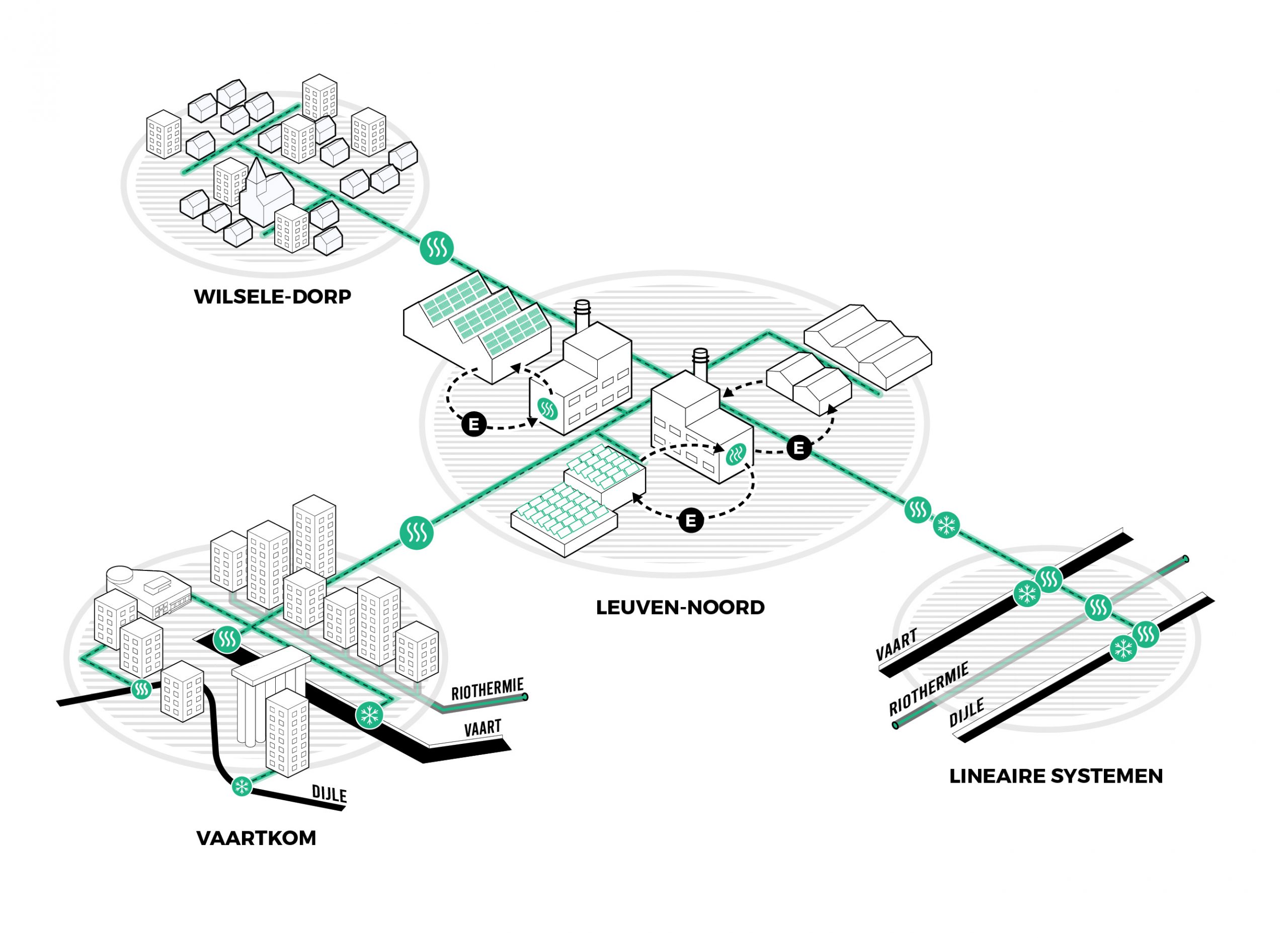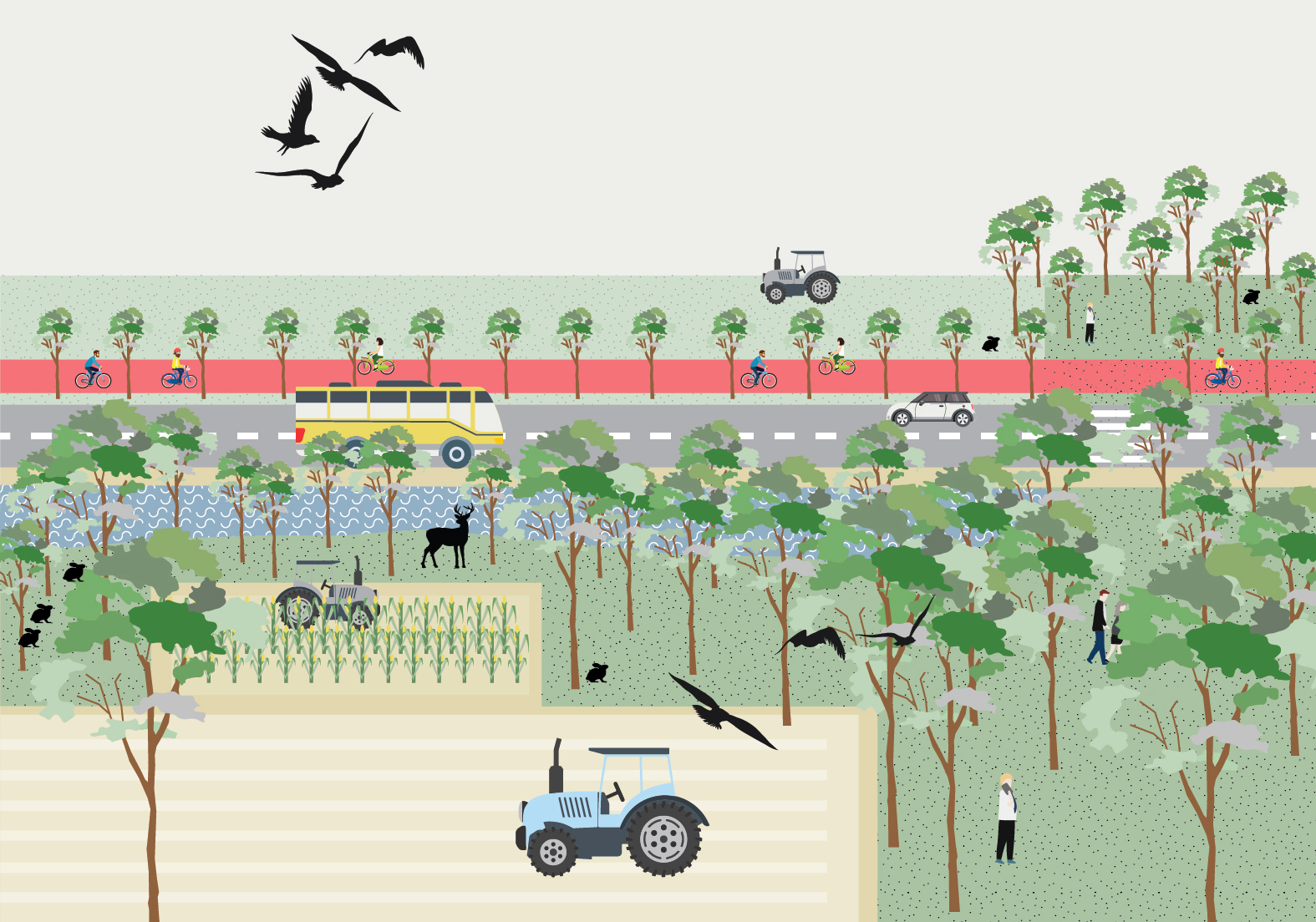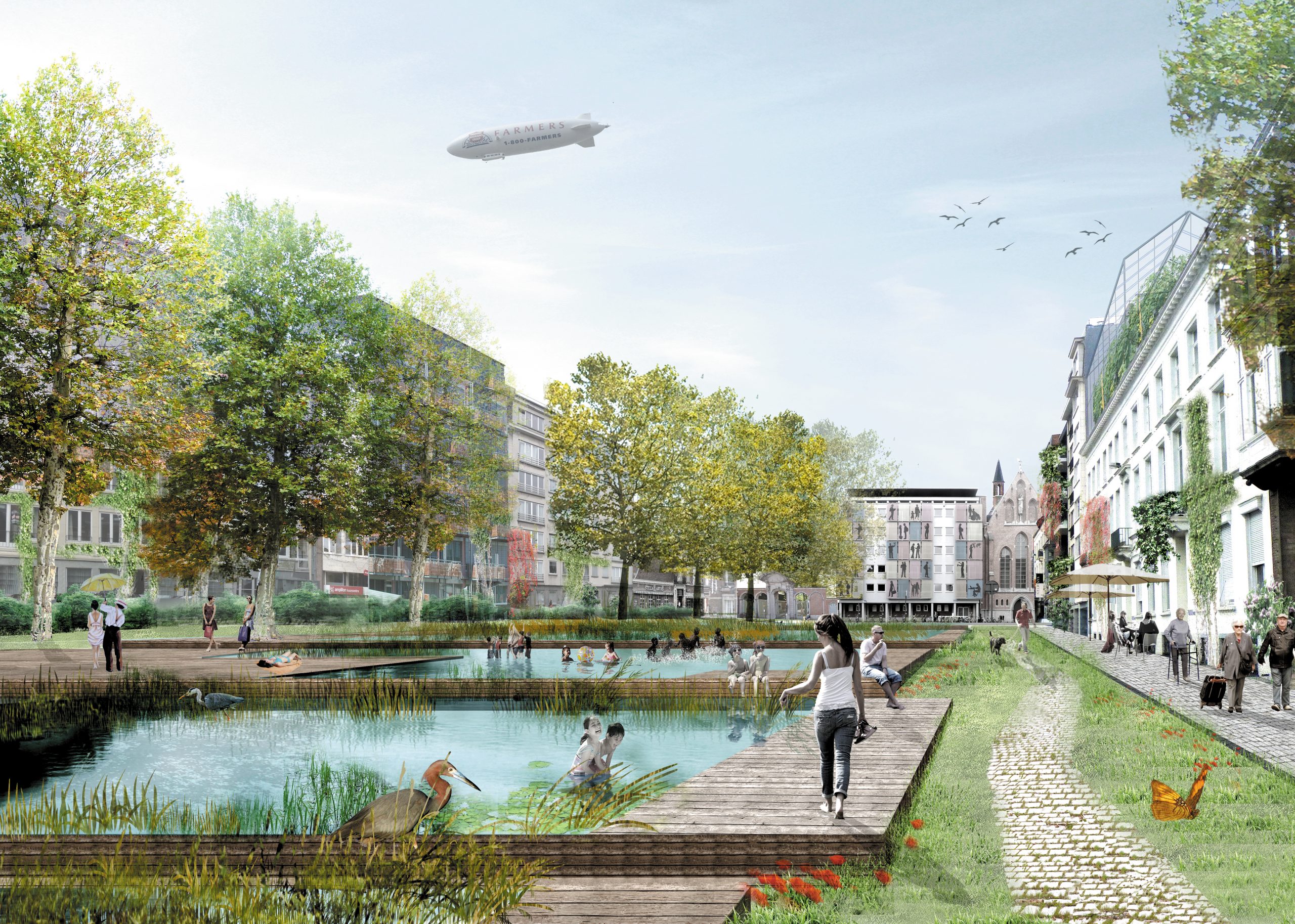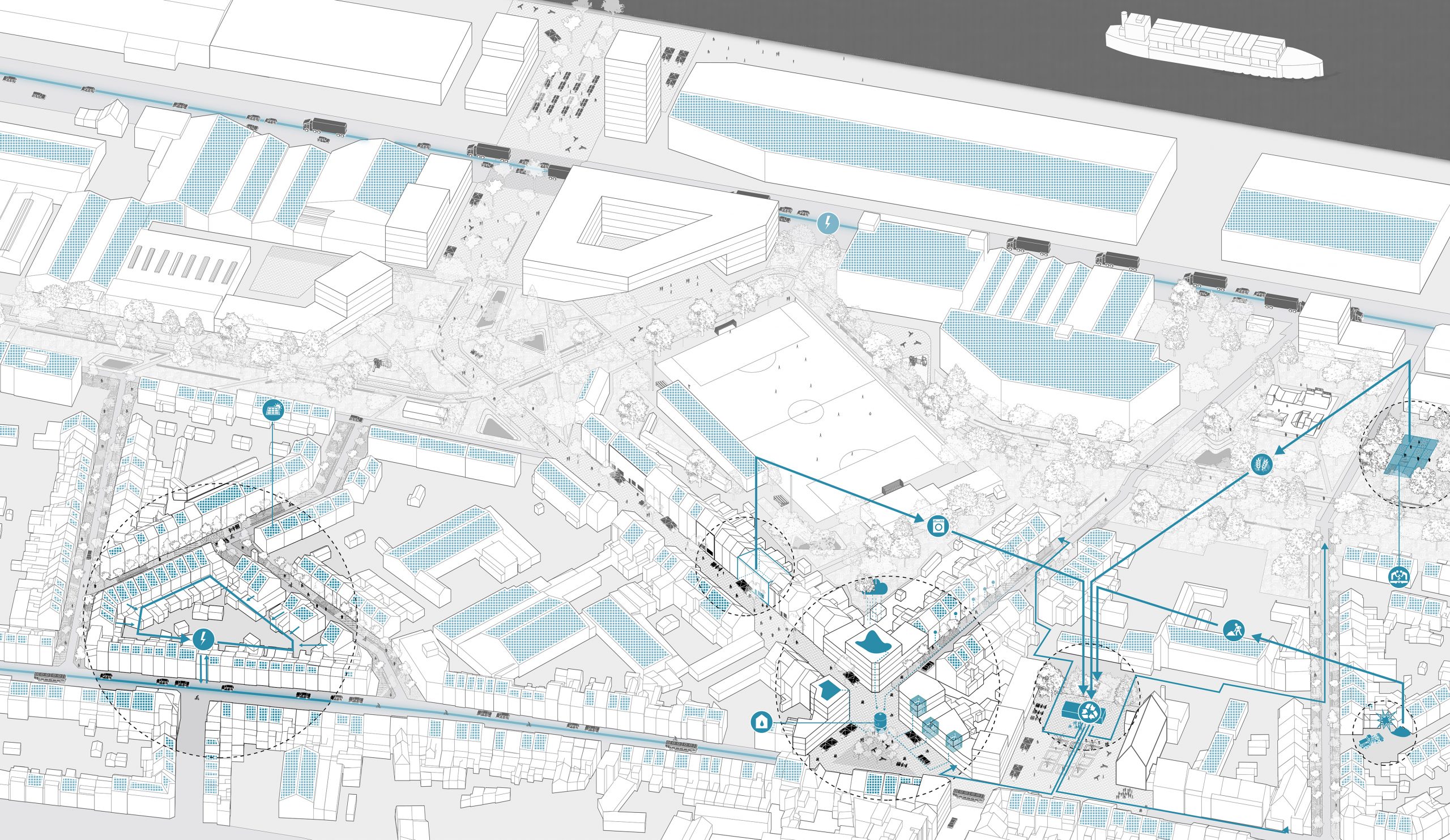Climate impact
The global climate change crisis is one of the greatest challenges of the modern age, one for which drastic action must be taken, and soon: better today than tomorrow. A large part of our impact on the climate can be traced back to the use of fossil fuels for generating energy to heat our buildings, for travelling, for manufacturing goods and for running our various electrical devices. A rigorous and effective climate policy thus cannot evade the necessity of a radical energy transition. But crucial keys for reducing greenhouse gas emissions also lie in our consumption patterns, the way we produce food and our use of space.
Space is playing an ever more important role in this effort: green energy production requires lots of space and has to be intelligently integrated, the ageing buildings where we live and work constitute one of the most important reasons for the high fossil energy consumption, our dispersed manner of building makes the use of cars unavoidable, and the need for more ecological food production must be spatially integrated into a landscape where reforestation and water buffering have proven to be indispensable for climate adaptation.
Climate policy
BUUR develops energy strategies and climate plans for everyone, from project developers to local government authorities and regions. With regard to energy policy we – often in collaboration with Sweco´s Energy Division – are pioneers on each of the various fronts.
At the local level we help reflect on how renovation strategies can be developed and how collective production and distribution of green heat can be organized. On the regional scale we develop plans for energy landscapes with space for large-scale renewable energy production. Under commission from the Flemish Department of the Environment, we are involved in developing a new policy approach focused on energy regions and collective renovation. At the same time we are ensuring that our own master plans devote as much attention as possible to climate resilience and sustainable energy strategy.
However, climate policy is more than just planning: a genuine transition can only take place if it is coupled with broad awareness-raising and a general behavioral change.
This affects many highly personal issues, such as where and how we want to build and live, how we travel, what we eat, which products we buy … As urban designers, we cannot claim the ability to bring about such large-scale social changes ourselves. But we can help facilitate them, come up with solutions, inspire people with attractive images of the future, and initiate and accompany the social debate.











